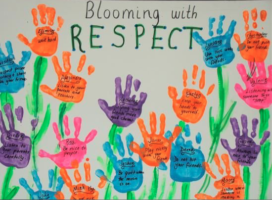As countries, organizations, and schools become increasingly diverse, questions arise as to how to reduce tension, improve relations, and foster co-existence between diverse groups? Within regions and nations with intense ethnic conflict and violence, what is the best way to foster negotiation between groups? The question may also arise as to what (if any) concerns are unique to the experience of minority groups within intergroup contexts with groups of differing power. One broad research focus of the lab is the study intergroup relations, with a particular focus on the perspective of racial, ethnic, and religious (e.g., Muslim) minority group members.
One line of work in this program of research investigates how group power, history, and concerns about identity help to explain how minority group members approach and understand relations with majority groups and/or predominantly majority institutions. For example, how does the way majority groups approach collaboration with minority groups affect minority group members’ willingness to work with a majority group? Thus, one line of work in the lab examines the way minority group members understand and approach intergroup relations with majority groups.
A second line of work under this umbrella of research is focused on understanding how to improve relations between groups. Understanding the conditions that lead to negative (e.g., increased conflict or discrimination) and positive (e.g., better problem-solving) intergroup relations is important not only for contexts with intense ethnic conflict and violence, but also for understanding diversity within school and organizational settings. This line of work explores how factors such as group ecology (e.g., segregation; organic or group-selected separation), power, norms, and social categorization, help to explain when and why conflict occurs between groups, as well as when groups are better able to work toward solving common problems within shared neighborhoods, multicultural learning communities, and multi-ethnic work environments.
In sum, drawing on the social identity perspective and theories of ethnic minority psychology, this program of research focuses on understanding the unique motivations and concerns that explain the behavior of minority groups within intergroup relations and also the evolution of both conflict and cooperation within diverse contexts or institutions.
Featured Publications

Glasford, D.E. & Dovidio, J.F. (2011). E
Pluribus Unum: Dual identity and
minority group members’ motivation
to engage in contact, as well as social
change. Journal of Experimental Social
Psychology, 47, 1021-1024. (PDF)

Glasford, D.E. & Calcagno, J. (2012).
The conflict of harmony: Intergroup
contact, commonality, and political
solidarity between minority groups.
change. Journal of Experimental Social
Psychology, 48, 323-328. (PDF)

Glasford, D.E. & Johnston, B. (2017).
Respect the technique: Status-based respect increases minority group social cohesion with majority groups, while also increasing minority collective action tendencies.
Journal of Social Psychology. (PDF)
